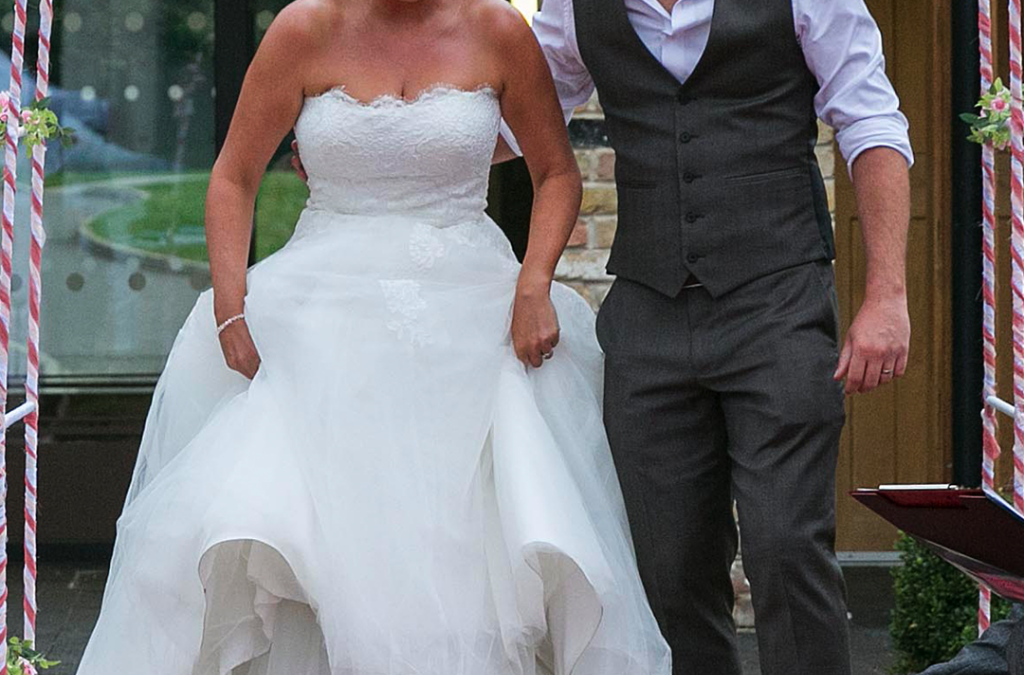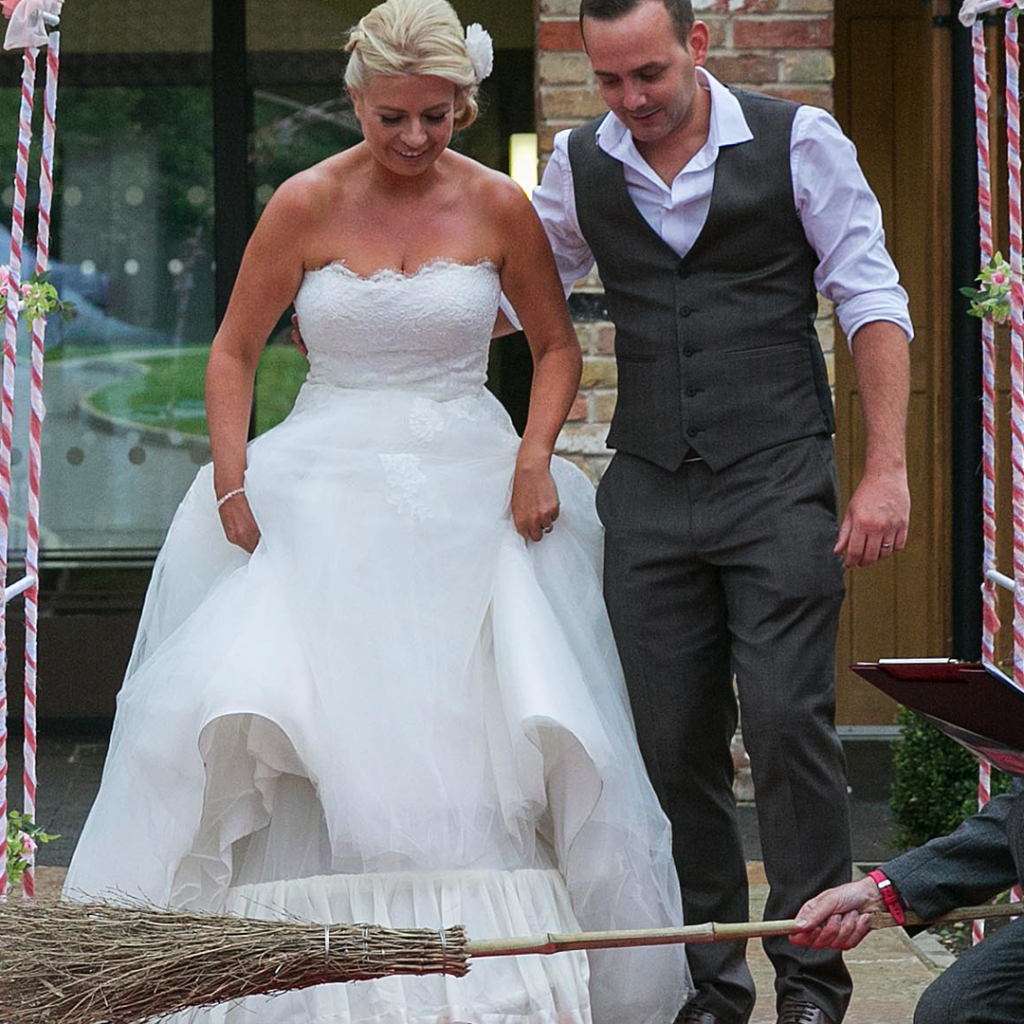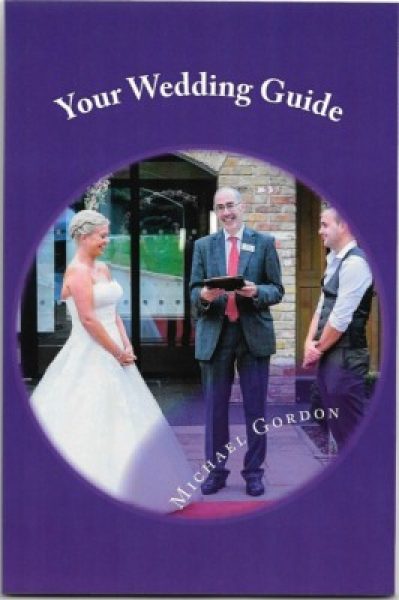by Michael | Apr 17, 2018 | Blog
Love it or hate it, social media are here to stay. But how much of a role should they play in a wedding and in the build-up?
OK, so I’m an ageing civil celebrant, not some tech-savvy teenager! However, I do have a few thoughts on this subject that might be useful.
Engagement/wedding
However tempting it may be, resist posting the good news of your engagement or wedding date on Facebook (or wherever) until you’ve told all your family and close friends first. It’s a common-sense, tactful thing. If you ignore that, you may end up causing a lot of offence.
Invitations
There’s nothing wrong with using social media for your invitations (e-vites) – it’s a lot cheaper than printed invitations and can still look good. (If you have a teenager in tow, they may design a fabulous invitation for you !) (You can always send printed invitations to your more conservative friends/relatives, if you choose.)
Invitation replies
You need to be able to track the replies, so you have to be consistent and clear. It may be best not to use social media here (not [quite] everyone has a Facebook account, for example). E-mail is probably safe, but technological problems are not unknown! What if your computer dies? Thus snail mail may be the best bet. So, ensure your address is on the invitation, even if the invitation is sent via social media.
The big event
It pays to communicate with your guests. Especially if you have special wishes.
You may well be happy with a photography free-for-all. That’s fine. If you want no photography during the ceremony, however, you can put a note in the programme or post this fact on the wedding website. Most – if not all – people will respect your wishes. ‘Unplugged’ weddings are becoming increasingly common nowadays.
Hopefully, guests who do take shots regardless will, at least, not post these for a few days. (It’s best to go with the flow, if people disregard your request – it’s not worth letting their lack of consideration spoil your big day.)
Of course, people should be welcome to take photos of themselves, if they want. You may set up photo opportunities for guests at the end of the ceremony (eg signing the register).
Afterwards
Do send out ‘thank you cards’ – but not by e-mail or social media. They’ve got to be hand-written.
So use social media to help you, by all means, but be tactful and considerate about it.
And if you’re looking for a non-tech-savvy person of more mature years to put together and conduct a truly magnificent ceremony, I think we know somebody who might fit the bill!
Visit www.shawprograms.co.uk for help planning your event (see photo).
by Michael | Mar 22, 2016 | Blog
Like it or not, social media is here to stay. It will surely be a part of your wedding, so a few tips about prudent use might prove invaluable.
Let’s consider three areas: wedding websites, invitations and handling social media.
Wedding Websites
It is increasingly common for couples to use wedding websites, Facebook pages and/or designated hashtags. The website should give directions to the venue (especially for more remote locations) and information about attire. Will it be outdoors? What sort of terrain should guests expect? If dress is important to you, don’t assume that everybody is going to know your expectations.
If you want to share details about your ‘story’, that is fine, but don’t go over the top. Make them tasteful and sincere.
Invitations
Obviously, you are going to include essentials such as date, time and place.
You may also have particular feelings about whether or not your wedding will be child-friendly or not. It may be better to approach this via the website, as you will have space to explain/justify your requests.
You don’t want to cause unintentional offence by excluding someone’s child while including somebody else’s. However, if that latter child has been invited as a bridesmaid, that’s not so bad. Or if you feel obliged to limit children to, say, ten for budgetary reasons, you could explain this. (Fore-warned is fore-armed!) Of course, you may at least still be able to invite the whole family to the wedding ceremony only.
Do read my article on children at weddings for more discussion on this subject.
If accommodation for guests is going to be an issue, your website can offer options and information.
A website is good for telling people about gifts, including whether there is a wedding list etc., not least because it can be updated. (However, information can go on a standard invitation too.)
Handling social media
Make sure you leave no doubt about social media rules. In my role as civil celebrant, I am increasingly seeing signs in the venue as people come in, informing them of the couple’s wishes – eg “Unplugged Ceremony”.
Let people know if they should not post photos of the big day until you have done so. This may apply especially to pictures of the bride before she’s walked down the aisle, so specify your wishes.
A hashtag is one way to track wedding photos from guests, so make sure you give out the information as to which hashtag your wedding will be using.
If you’re inviting a lot of VIPs, it may be better to request social media silence from your guests.
As a guest, if you’re not happy about something that happened (or didn’t) at the wedding, don’t put that on social media. The couple probably put a lot of effort in to planning the event, and, with the best will in the world, things can get overlooked or go wrong. (At my wedding, I genuinely forgot to invite an aunt to the family supper afterwards, and that understandably didn’t go down well, although relations were restored after a while!)
Social media and the internet should add to the experience, not cause stress or detract from the couple. Be careful and respectful.

by Michael | Jun 9, 2015 | Blog
With times and trends moving so fast, it’s not always clear what wedding guests should and should not do nowadays. Here are a few rules to think about.
Invitations
Invitations may come by post or by e-mail these days, and it’s probably best to reply the same way. It is courtesy, to be frank, but it can also help the couple work out logistics, if all the replies come in the same form.
I don’t recommend giving an oral response (if you happen to meet the bride/groom out somewhere), as that can easily get overlooked.
It may be that only you are invited, but you have a plus-one. You may have to accept that the couple are limited for space/budget etc. And don’t assume your children are invited if they are not specifically mentioned. However, if you are engaged or married, then it’s fair enough to query it.
Social Media & photography
There will be differing views about photographing the wedding ceremony. (I have written on this subject before.) The first basic rule, in my view, is that unless you are actively encouraged by the couple (eg offering a hashtag to use on all wedding photos), don’t post anything. You certainly should not be posting before the couple themselves have done so.
There may well be a professional photographer present. He will have been paid specifically by the bride and groom to do a job, and it’s unfair if guests get in his way and even spoil shots for the couple.
Presents
There’s still a lot to be said about a John Lewis list or registry, for example. It makes perfect sense that the couple receive what they actually want – and not in multiple quantities. If the gifts on the list are too dear, then I’d say it’s acceptable to give a cheque or gift vouchers.
If you insist on giving an unasked-for present, then include the receipt so it can be changed, if necessary.
Dress
One thing that has become acceptable as a guest is to wear white to a wedding. But not all-white. Something with white in it is fine, but it’s really not the thing to steal the bride’s thunder. You can even wear black these days, but ensure it doesn’t look too funereal. (Jewellery and choice of shoes can lighten the effect.)
Ceremony and reception
Unless specifically stated otherwise, the invitation will be for the ceremony and reception (and not one or the other). You may not like church weddings, say, but that’s not an excuse to miss it. The couple will want you for the whole experience, so it would be rude to duck out. If it is important for the couple, it should be worth putting up with on your part.
Don’t think nobody will notice, either!

Participation
Whatever your views about wedding traditions, if the couple want to include some, respect this. It is their big day, after all, rather than yours. Excuse yourself quietly, if you really can’t stomach it.
Of course, if the wedding is civil celebrant-led, then don’t expect the orthodox, but have an open mind and enjoy!
There’s no reason why you can’t appreciate the wedding ceremony and reception as a guest. Most guests do so without the need to offend anybody. The key thing, whatever your feelings, is to remember whose day it really is.

by Michael | Apr 29, 2015 | Blog
An insuperable obstacle?
Planning a wedding is a pretty daunting prospect. You may just be lucky, and have wise advisors and experienced, understanding support. The chances are, though, that it’s new to you, and you’re going to have to do the best you can. You’ll have to make – and learn from – your own mistakes. Some may be expensive.

An amazing solution
That sounds pretty grim. However, would you be prepared to spend about £5 to get a dependable, easy-to-follow guide?
If so, you have come to the right place!
As part of my role as civil celebrant, I frequently come across couples swimming in a sea of bewilderment and despair. There’s not a lot of help out there for them – although there is at least the option of an event planner. Naurally, these don’t come cheaply.
What if there was a guide that they could buy for ‘peanuts’, that would lead them gently and securely towards the Eldorado of a successful wedding? Towards a unique, memorable and meaningful day? That would offer them great ideas? Something that they could consult at every step of the way?
Well, look no further.
I am proud and excited to announce that I have put the proverbial pen to paper (except it’s all been done by computer, of course) and produced a handbook specifically aimed at helping couples get on their way with a minimum of fuss or difficulty. That’s not to say that there isn’t still hard work to be done, or time and money to expend. Of course, there is, but you can at least be sure that you are progressing, covering most eventualities and not going round in circles.
What areas are covered?
Some of the areas I look at include:
- choice of ceremony and celebrant
- the service: rituals, vows, music, etc.
- ‘team’ roles
- speeches
- guests
- children
- same-sex weddings
- hiring professionals
- social media
I don’t pretend to have something for absolutely everyone (budgets, as well as taste, will vary enormously), but I am convinced that there is so much in the wedding guide for everyone (from first-timers to wedding planners!).
I am delighted to be the one to fill what seems to be a huge gap in the market.
If you know somebody who might benefit from this handbook, please put them in touch with me. It’s easy to buy: just click here, and you’ll be through to Amazon.
I am not actually anticipating a million-seller block-buster, but I am really excited to be offering practical help to couples, so that they can have the wedding they are dreaming about!
by Michael | Mar 24, 2015 | Blog
I’m a dinosaur. I’m not entirely proud of the fact, and occasionally do manage to move with the times a bit. But I am gradually coming to terms with the fact that social media in the wedding world are here to stay.
Certainly, seeing photos online the day after the wedding is very desirable.
However, I feel that the occasion is diminished by legions of smartphone-users raising arms every moment to capture yet another picture. It detracts from the atmosphere, spoils the view of other guests and can ruin the shots of the photographer whom the couple may have paid to be there.
Some weddings are now being referred to as “insta-weddings” because of the social media frenzy they generate.
Couples will have their own opinions. A British study of brides’ expectations shows that nearly half believe it is important to enforce digital rules on wedding guests, with one in seven wishing mobile phones could be banned.
It’s something for you to consider, and here are a few thoughts that may help you make up your mind.
Before the event
• Engagement/wedding
Make sure you inform your family and close friends before posting the news online.
• Invitations
E-vites are an acceptable use of social media.
Invitation replies
Probably safer to ask people to use Royal Mail. You need to track the replies, and this may work out more reliable than FaceBook and the like.
At the event
Rules
In my experience, most couples feel that there should be rules about social media. These rules vary, of course, but many believe that it should be the couple who are the first to post wedding photos on a social media site. A lot also feel that bridesmaids should not be allowed to upload photos of brides before the ceremony.
Whatever you decide, you need to inform your guests clearly. It pays to communicate with your guests.
Of course, people should be welcome to take photos of themselves, if they want.
Afterwards
Do send out ‘thank you cards’ – but not by e-mail or social media. They ought to be hand-written.
Social Media Ideas
In certain cases, friends of the pair may create a hashtag handle for tweeting and photo-sharing. This also ensures that each wedding is distinctive. Useful, if you happen to be invited to a whole lot of weddings in one season.
A bride can nowadays designate a “Tweeter of Honour”, if she has too much to occupy herself with.
Instagrams can show natural, unforced moments. Nonetheless, it’s very rare that such photos beat the professional photographer’s shots.
Advantages of photo-sharing are that guests can contribute to a designated wedding album and, of course, those unable to attend, may be able to see photos or even live streams.
Beware of overkill, by the way. Thousands of posts before the wedding will be a turn-off.
Whether or not you opt for social media, moderation is advisable – and do make sure you communicate your wishes to your guests.




